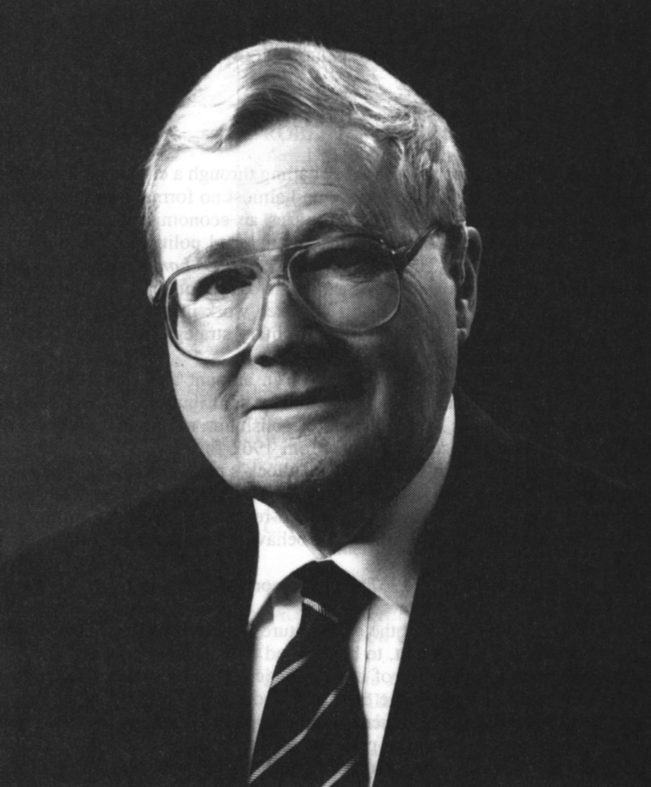Liberty Matters
Thinking and Doing
 Near the beginning of his "Conversation" response, Pete Boettke says we cannot have prices without property rights. Sure, that's true enough as far as it goes. But I argued that Tullock looked outside of the human context, where prices can't exist, because property rights don't exist.
Near the beginning of his "Conversation" response, Pete Boettke says we cannot have prices without property rights. Sure, that's true enough as far as it goes. But I argued that Tullock looked outside of the human context, where prices can't exist, because property rights don't exist.Hayek (1945, 528) famously cites Alfred North Whitehead's observation that more civilization means less thinking and planning. As Whitehead put it:
It is a profoundly erroneous truism, repeated by all copy-books and by eminent people when they are making speeches, that we should cultivate the habit of thinking of what we are doing. The precise opposite is the case. Civilization advances by extending the number of important operations which we can perform without thinking about them. Operations of thought are like cavalry charges in a battle — they are strictly limited in number, they require fresh horses, and must only be made at decisive moments. [An Introduction to Mathematics (1911), ch. 5.]
One of the things I have always admired about Tullock is that he took a sharp turn, extending this insight from the human setting, where price reflects opportunity costs of resources and allows reconciliation of conflicting plans into a coherent whole, to nonhuman settings -- "civilization" in nonhuman societies. The general problem is that no one individual has anything like the capacity to know what is required to judge the opportunity costs of all the entities in the society. This may be true because of information-processing and -gathering limits, as in human societies. So humans can use markets
Or it may be limits on cognitive capacities in eusocial "societies" such as beehives or ant colonies. What do they do? Profit and loss are not operative; survival and extinction are the metrics of evaluation. Nonhuman species act as if they were "trying" to survive. The "rules," using evolved behaviors and complex systems of pheromones, are not something that the citizens of an ant colony voted on or consented to. Neither are these rules something that can be amended, even by unanimous consent. There are no property rights, and there are no prices.
Yet there are collective-choice mechanisms. One of the most famous of these is the hive-selection process faced by groups of common honeybees, or apis mellifera. The queen of a beehive has no greater cognitive power than any other bee, and none of the bees can really think or choose. Yet the problem of choosing among a set of likely hive sites when the colony has grown large enough to be divided is an obvious collective-choice problem.
How can a hive decide when no one bee in the hive has much information and each bee has effectively no cognitive capacity? The group needs what we might (imprecisely) call an "institution." The reason I find this so interesting is that the difference between bees—who can't think or use information very well—and human beings—who vastly overestimate their capacity to choose rationally in groups—is less than we might imagine.
That was Tullock's contribution, in my view, at least in his work in sociobiology (for example, Tullock 1979). Each "society" that survives must evolve some institutional means of reconciling the contradictory plans and purposes of its "citizens" and must also generate accurate information about the opportunity costs of choices. For bees, making the wrong choice of hive site could easily result in death of the entire colony; if the institution used to "choose" is inferior, the species would collapse and disappear, outcompeted by other species for space in the ecosystem.
Bees solve the social-choice problem by using a hardwired behavior, in effect transforming the hive into a cybernetic thinking machine. (Landa 1999) Scouts gather information and then advertise using a "dance." The choice of the group rests on unanimity, even though the bees have no way of understanding voting or thinking about opportunity costs.
Hayek pointed out that humans didn't really understand the institutions that allow them to solve such problems. Tullock recognized that in that incapacity we might not be very much better than bees, though of course bees could make no pretense of understanding. The problem in dealing with humans is that we overestimate our capacities to substitute institutions such as markets and price systems.
So, while I ultimately agree with Prof. Boettke's claim that property rights are essential in the human context, the reasons why may be hard to explain. The difference between bee choice and human choice is more apparent than real, though we fancy the difference is large. Human cognitive capacities are far greater than that of bees, but this difference is largely irrelevant to the relative abilities of the two species to do centralized social and economic planning. Tullock, to his credit, noticed that humans aren't much more likely to understand what we're doing than groups of insects.
References
Hayek, F.A. 1945. "The Use of Knowledge in Society." American Economic Review, 35(4): 519-30.
Landa, J.T. 1986. "The Political Economy of Swarming in Honeybees: Voting-with-the-Wings, Decision-Making Costs, and the Unanimity Rule," Public Choice, 51(1): 25-38.
Tullock. G. 1979. "Sociobiology and economics." Atlantic Economic Journal. 7 (3): 1–10.
Copyright and Fair Use Statement
“Liberty Matters” is the copyright of Liberty Fund, Inc. This material is put on line to further the educational goals of Liberty Fund, Inc. These essays and responses may be quoted and otherwise used under “fair use” provisions for educational and academic purposes. To reprint these essays in course booklets requires the prior permission of Liberty Fund, Inc. Please contact oll@libertyfund.org if you have any questions.